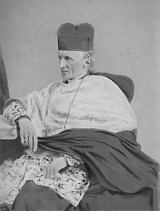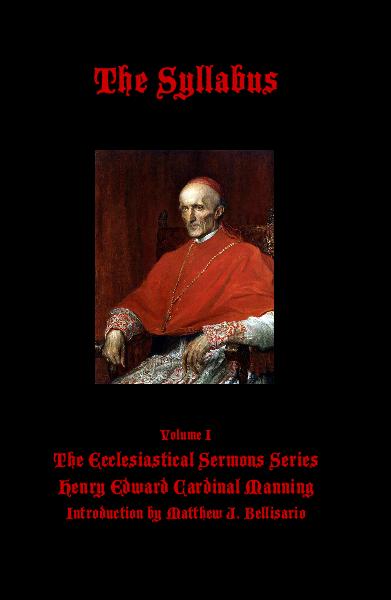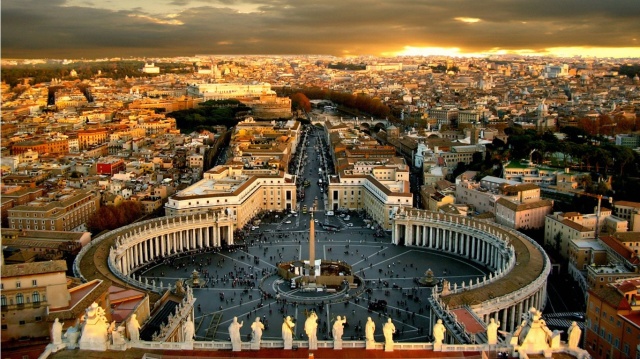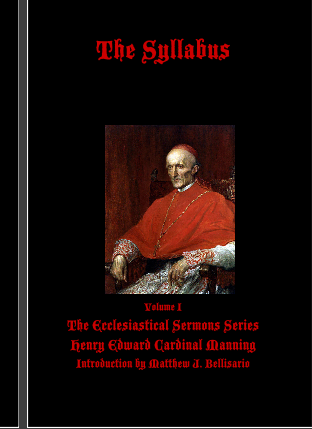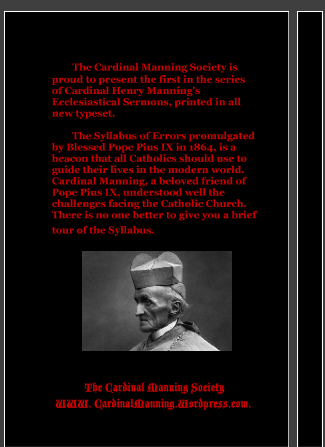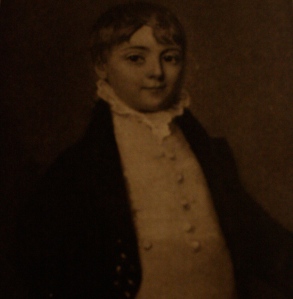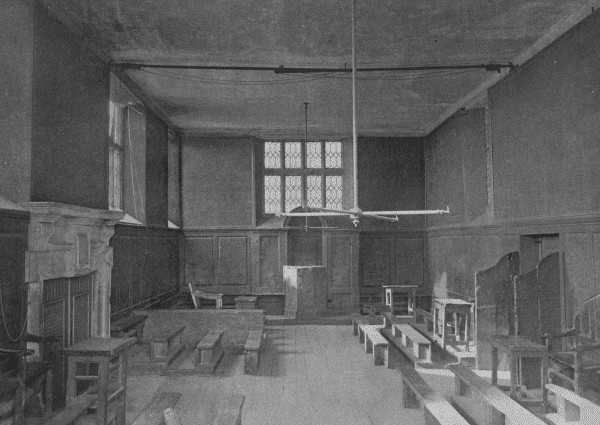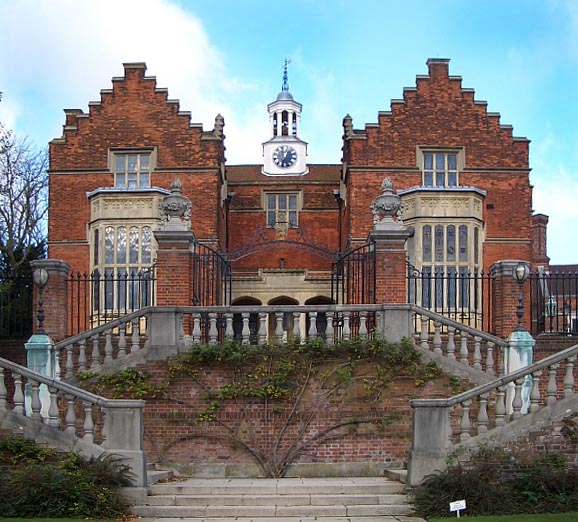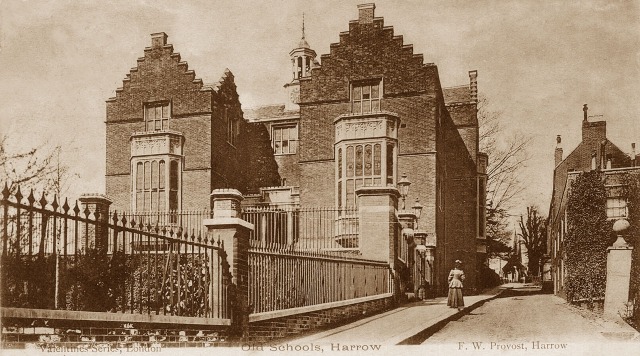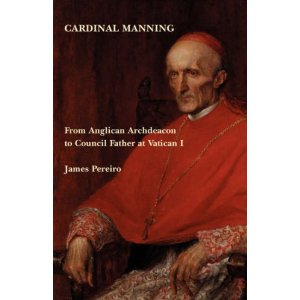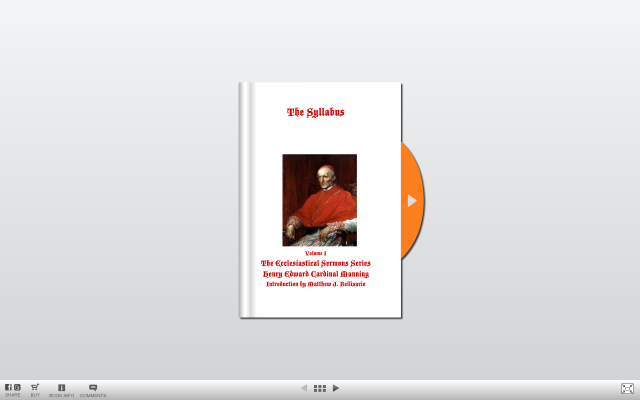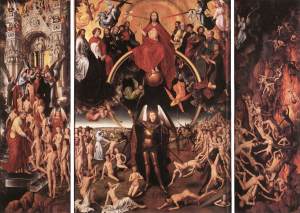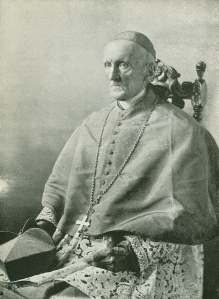Welcome to the new Cardinal Manning Society website! Everything you wanted to know about the great Henry Edward Cardinal Manning, can now be found in one convenient place. We have provided links to his works, of which almost all are in the public domain, and we are also in the process of digitizing his books into audio form so you can take the Cardinal with you everywhere you go! Below is my written introduction on the Cardinal. You can read it, or have my digital English friend Henry read it to you! I hope that the great Cardinal’s work will be a blessing to you as it has thus far been for me.
Matthew J . Bellisario. Oct 8th, 2010
About Cardinal Manning
Henry Edward Cardinal Manning is sadly a well kept secret in the Catholic world today. Although well known throughout England in the mid to late 19th century for feeding the poor, educating children of lesser means, resurrecting Catholicism in England, being one of the instrumental theologians at Vatican I, and standing up for the Catholic faith against the new wave of modernism, he was quickly dismissed by the following new crop of modern theologians as being rigid and Ultramontane. When the great Cardinal went to his repose on Jan 14th, 1892, Victorian London had never witnessed such a large funeral. What happened in the short time after his death that virtually erased his memory from the minds of the Catholic world? How did his reputation become so controversial? Often accused of being self centered, Ultramontane and rigid, he quickly fell under the shadows of other English converts such as John Henry Newman, who had nowhere near the influence or reputation that Manning had when the two were alive.
Manning unfortunately fell prey to a biographer who did not like Manning, and his reputation was quickly scarred by his biased attitude towards the Cardinal. As Fr. James Pereiro writes in his book ‘Cardinal Manning-From Anglican Archdeacon to Council Father at Vatican I,’ “Manning was unfortunate in having Edmund Sheridan Purcell as his first biographer.” It seems that Purcell published his biased work which painted Manning as Pereiro writes, “in the mould of the ambitious authoritarian and unscrupulous schemer,…” At least two authors read Purcell’s work before it was published who knew Manning, and they tried to convince Purcell to rewrite his scathing mischaracterization. Unfortunately Purcell persisted and it was his biography that took hold in the imagination of the masses concerning the Cardinal. Since then there have been a few other biographies written to correct Purcell’s work, but the sands of time seem to have already covered the life and thought of Cardinal Manning, and has seemingly sealed it off forever in the dusty annals of history, only to be discovered by blessed few who may accidentally stumble upon him when researching that era of English history.
Despite this heavy cloud that now hangs over the great Cardinal, it is the light of God that will eventually break through the obscuring cover. Fortunately for us, we have all of the Cardinal’s formal works available to us today, many in the public domain which are easily accessible to anyone with an internet connection. We also have most of his written correspondence that he had with many people like Gladstone, the Wilberforces and Newman. We have many testimonies to the great heart and spirit of Manning from the lips of both Protestants and Catholics, applauding his work in the realm of social justice, that is the social justice in the true sense of the term. Likewise they recognized his efforts to feed the poor and educate the children of England. He rightfully believed that education was not only for the elite class, but for everyone. Manning always tried to bring the Catholic faith into action in the lives of working men and women, that is he sought to bring it to the “average Joe.” What impresses me about the Cardinal as a theologian was, he did not write theology for an elite class in an ivory tower to be discussed among some haughty inner circle of theologians who shared in some cryptic language that only they could understand. He wrote theology for the enrichment of all Catholics so they could live their lives in the love of God, not for the pride of theological knowledge. Manning did not set out to stretch the boundaries of the theological realm to make a name for himself as so many have done after him. He wrote simply to communicate the known Catholic faith to anyone who sought to understand it, embrace it and live it.
What other testimony is greater than that of Pope Pius IX who welcomed Manning with open arms, having him ordained a priest just 10 weeks after coming into the Church. Later Pope Pius IX would reject the opinion of other bishops to appoint someone else other than Manning to Archbishop of Westminster, and instead moved Manning straight from priest to Archbishop. By the conservative orthodox Catholics, he was viewed as a champion of the faith, by the later arrogant “New Theologians” he was viewed as a simpleton, who was too rigid in his thoughts. Yet who’s ideas were used at the Vatican Council I when the dogma of infallibility was defined? Who was appointed to the Committee “De Fide” to help define the dogma? No it was not John Henry Newman, it was Henry Edward Manning.
When Manning’s writings and life are closely examined, I believe that we as Catholics will come to realize what a tragedy it has been to neglect this long lost friend of ours. It is with great joy that I present to you this website promoting the life and work of Henry Edward Cardinal Manning. Take the time to enrich yourself with his writings and use them to deepen and strengthen your faith. I have made his writings easily accessible in both written and audio book formats. Spread the word about the Cardinal so he can become once again a great friend to all Catholics and non-Catholics alike. Perhaps he may even intercede on your behalf from the heavens above!
May God bless and keep you always,
Matthew J. Bellisario. Oct 8, 2010
Do not fear to be thought over-strict ; do not fear to be reproached as extreme ; do not fear to be in a minority. Cardinal Manning.
